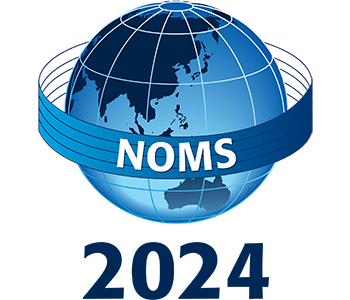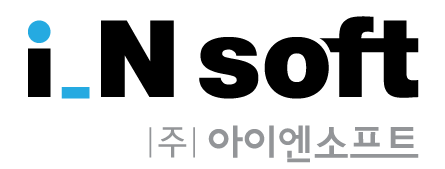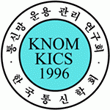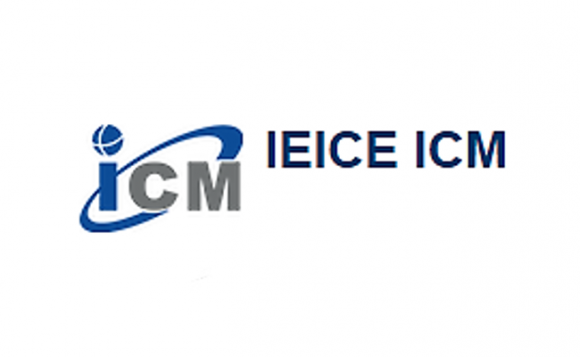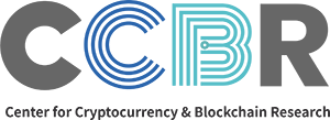Tuesday, May 7th 2024
| 14:00-15:30 |
Panel 1 Securing Critical Infrastructure: Navigating IoT Challenges and Ensuring Systematic Visibility Room: Gayageum A Moderator: Dr. Arash Shaghaghi (UNSW Sydney and Cyber Security Cooperative Research Centre, Australia) |
Abstract: Major cybersecurity attacks have recently targeted critical infrastructure, significantly affecting service providers and their customers. Investigations have revealed that associated risks could have been better managed if appropriate measures had been taken to ensure the visibility of the critical infrastructure. Systematic visibility and automated guarantees of critical infrastructure are now emerging research topics in academia and industry to manage cybersecurity risks. In this panel, we bring leading researchers and industry experts to discuss the most important challenges related to the security of critical infrastructure with a specific focus on the case of the Internet of Things (IoT).
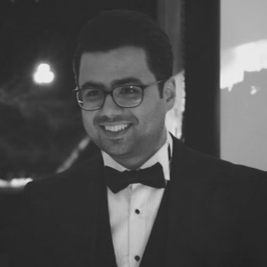 Moderator: Dr. Arash Shaghaghi, UNSW Sydney and Cyber Security Cooperative Research Centre, Australia
Moderator: Dr. Arash Shaghaghi, UNSW Sydney and Cyber Security Cooperative Research Centre, Australia
Arash Shaghaghi is a Senior Lecturer in Cyber Security at the School of Computer Science and Engineering (CSE) of UNSW Sydney. At UNSW, he is a member of the UNSW Institute for Cyber Security (IFCYBER) and the Information Security and Privacy Group (IsPri). Arash is affiliated with the Cyber Security Cooperative Research Centre (CSCRC) and leads the “IoT Data Security and Assurance Framework for Intelligent Transport" project funded by Cisco and CSCRC. As a system security researcher, he is passionate about designing and developing secure systems that adhere to “secure-by-design” principles, leveraging state-of-the-art technologies. Arash has received over 1.7 million AUD funding (Lead CI and CI combined) for his cyber security research from various sources, including industry, government, and universities. He has received awards and appraisals for his research performance, including university recognitions and best paper awards. In 2023, Arash was among the top 200 young computer science and mathematics scientists selected by the Heidelberg Laureate Forum (HLF) in Germany.
Panelists:
- Prof. Burkhard Stiller (University of Zurich, Switzerland)
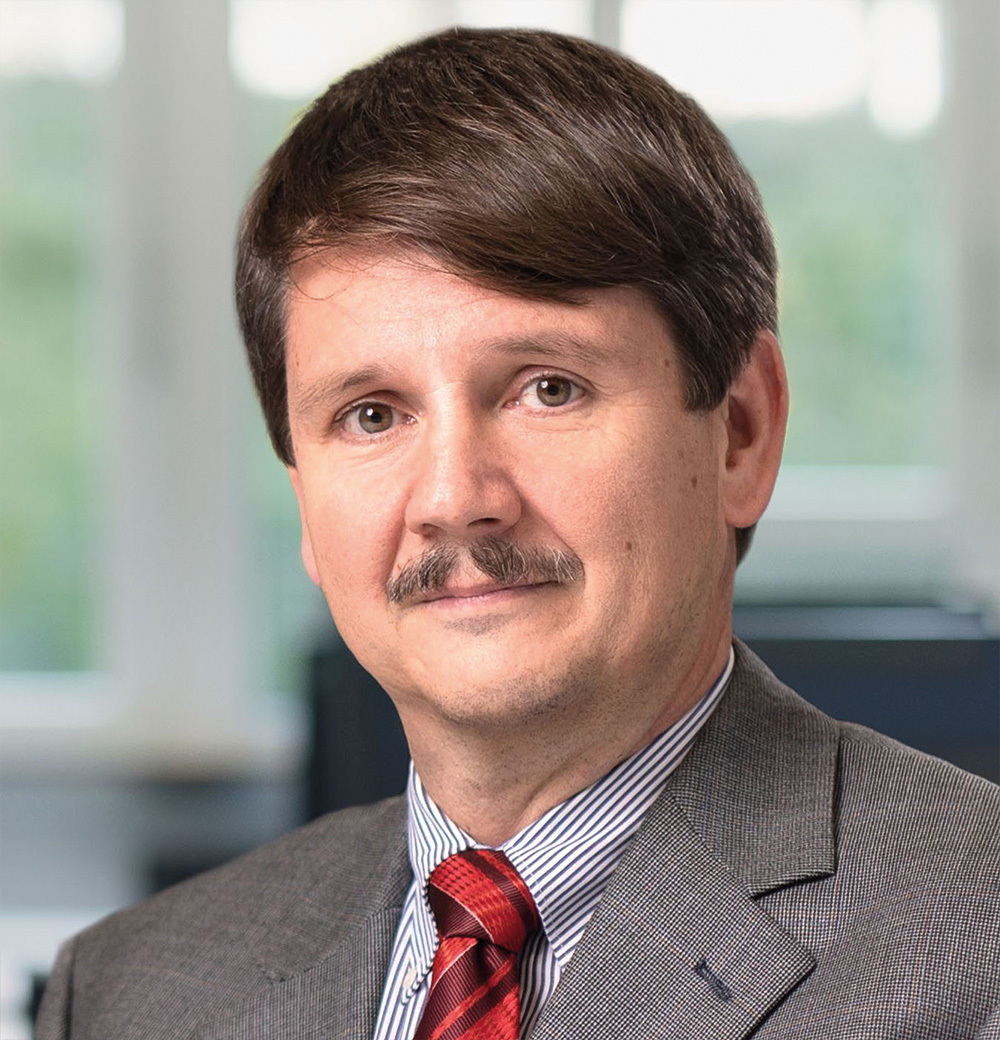 Burkhard is the director of the Communication Systems Group CSG and Full Professor of Computer Science, in particular on Communication Systems, in the Department of Informatics IfI at the University of Zurich UZH. Burkhard is a member of the UZH Blockchain Center (BCC), a member of the the Center for Information Technology, Society, and Law (ITSL), a member of the Luxembourg Science Foundation’s (FNR) Scientific Council, the Chair of IFIP’s Technical Committee TC6 on Communication Systems, an Editorial Board member of the IEEE Transactions on Network and Service Management (TNSM), the Springer Economic Research and Electronic Networking Series as well as the Journal of Network and Systems Management, Wiley’s International Journal of Network Management, and past Editor-in-Chief of Elsevier’s Computer Networks Journal as well as past chair of the IEEE Computer Society’s Technical Committee on Communication Systems (TCCC). Burkhard’s research interests include systems with fully decentralized control (blockchains, clouds, peer-to-peer, eVoting), network and service management (economic and security management), Internet-of-Things (security of constrained devices, LoRa), and telecommunication economics (charging and accounting).
Burkhard is the director of the Communication Systems Group CSG and Full Professor of Computer Science, in particular on Communication Systems, in the Department of Informatics IfI at the University of Zurich UZH. Burkhard is a member of the UZH Blockchain Center (BCC), a member of the the Center for Information Technology, Society, and Law (ITSL), a member of the Luxembourg Science Foundation’s (FNR) Scientific Council, the Chair of IFIP’s Technical Committee TC6 on Communication Systems, an Editorial Board member of the IEEE Transactions on Network and Service Management (TNSM), the Springer Economic Research and Electronic Networking Series as well as the Journal of Network and Systems Management, Wiley’s International Journal of Network Management, and past Editor-in-Chief of Elsevier’s Computer Networks Journal as well as past chair of the IEEE Computer Society’s Technical Committee on Communication Systems (TCCC). Burkhard’s research interests include systems with fully decentralized control (blockchains, clouds, peer-to-peer, eVoting), network and service management (economic and security management), Internet-of-Things (security of constrained devices, LoRa), and telecommunication economics (charging and accounting).
- Prof. Robin Doss (Deakin University, Australia)
 Robin Doss is Professor of Cyber Security and Director of the Deakin University Centre for Cyber Resilience and Trust. Professor Doss leads a team of 150+ multi-disciplinary researchers working with industry, business, and government to advance cyber security technology, strategy, policy, and governance. In addition, he also leads the Development of Next Generation Authentication Technologies theme for the national Cyber Security Cooperative Research Centre (CSCRC). Professor Doss has an extensive research publication portfolio and in 2019 was the recipient of the Cyber Security Researcher of the Year Award from the Australian Information Security Association (AISA).
Robin Doss is Professor of Cyber Security and Director of the Deakin University Centre for Cyber Resilience and Trust. Professor Doss leads a team of 150+ multi-disciplinary researchers working with industry, business, and government to advance cyber security technology, strategy, policy, and governance. In addition, he also leads the Development of Next Generation Authentication Technologies theme for the national Cyber Security Cooperative Research Centre (CSCRC). Professor Doss has an extensive research publication portfolio and in 2019 was the recipient of the Cyber Security Researcher of the Year Award from the Australian Information Security Association (AISA).
- Prof. Sangdon Park (POSTECH, South Korea)
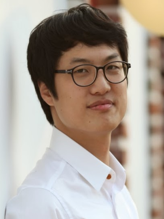 Sangdon Park is an Assistant Professor at POSTECH GSAI/CSE. Previously, he was a postdoctoral researcher at the Georgia Institute of Technology, mentored by Taesoo Kim. He earned his Ph.D. in Computer and Information Science from the University of Pennsylvania in 2021, where he was advised by Insup Lee and Osbert Bastani. His research interest focuses on designing trustworthy AI systems by understanding from theory to implementation and by considering practical applications in computer security, computer vision, robotics, cyber-physical systems, and natural language processing.
Sangdon Park is an Assistant Professor at POSTECH GSAI/CSE. Previously, he was a postdoctoral researcher at the Georgia Institute of Technology, mentored by Taesoo Kim. He earned his Ph.D. in Computer and Information Science from the University of Pennsylvania in 2021, where he was advised by Insup Lee and Osbert Bastani. His research interest focuses on designing trustworthy AI systems by understanding from theory to implementation and by considering practical applications in computer security, computer vision, robotics, cyber-physical systems, and natural language processing.
- Dr. Nadeem Ahmed (Cyber Security Cooperative Research Centre and UNSW Sydney, Australia)
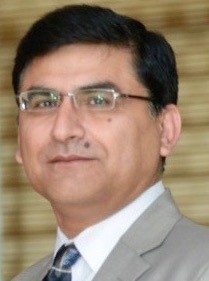 Dr. Nadeem Ahmed earned his PhD in Computer Science and Engineering from the University of New South Wales (UNSW) Sydney, Australia, in 2008. Currently serving as a Senior Research Fellow at the Cyber Security Cooperative Research Centre (CSCRC) since January 2020, Dr. Nadeem's research focuses on enhancing security for critical infrastructure, particularly in the Distributed Energy Resources (DERs) sector within the energy industry. Before joining CSCRC, Dr. Nadeem held the position of Head of Department for Computing at the School of Electrical Engineering and Computer Sciences (SEECS), National University of Sciences and Technology (NUST) in Pakistan. He also serves as the technical lead for the Australian Interoperability Steering Committee - Cyber Security Working Group (ISC-CWG) on DERs and is a member of the Cyber Advisory Group for the security of Consumer Energy Resources at Standards Australia.
Dr. Nadeem Ahmed earned his PhD in Computer Science and Engineering from the University of New South Wales (UNSW) Sydney, Australia, in 2008. Currently serving as a Senior Research Fellow at the Cyber Security Cooperative Research Centre (CSCRC) since January 2020, Dr. Nadeem's research focuses on enhancing security for critical infrastructure, particularly in the Distributed Energy Resources (DERs) sector within the energy industry. Before joining CSCRC, Dr. Nadeem held the position of Head of Department for Computing at the School of Electrical Engineering and Computer Sciences (SEECS), National University of Sciences and Technology (NUST) in Pakistan. He also serves as the technical lead for the Australian Interoperability Steering Committee - Cyber Security Working Group (ISC-CWG) on DERs and is a member of the Cyber Advisory Group for the security of Consumer Energy Resources at Standards Australia.
- Dr. Jerome Meyer (Nokia, France)
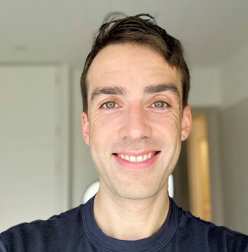 Jérôme Meyer is a Deepfield Security Researcher at Nokia. 2023 has seen an unprecedented increase in DDoS attacks and threats are always evolving. In his role at Nokia, Jérôme dives deep into the area of network security and the DDoS landscape, providing critical research, analytics & competence development that shapes Nokia’s development of secure network solutions for communication service providers and enterprises around the globe. Jérôme has presented around the world at key network technology events including MPLS World Congress 2023 and TNC 2023 hosted by GEANT, the pan-European research network. Based in Paris, Jérôme has held positions in Nokia’s Network Infrastructure and Mobile Networks organizations and has worked supporting sales & pre-sales teams in the Asia-Pacific region, based in Malaysia, before returning to Europe in 2023. Jérôme holds a Master's degree from the Institut National des Sciences Appliquées, Lyon, France.
Jérôme Meyer is a Deepfield Security Researcher at Nokia. 2023 has seen an unprecedented increase in DDoS attacks and threats are always evolving. In his role at Nokia, Jérôme dives deep into the area of network security and the DDoS landscape, providing critical research, analytics & competence development that shapes Nokia’s development of secure network solutions for communication service providers and enterprises around the globe. Jérôme has presented around the world at key network technology events including MPLS World Congress 2023 and TNC 2023 hosted by GEANT, the pan-European research network. Based in Paris, Jérôme has held positions in Nokia’s Network Infrastructure and Mobile Networks organizations and has worked supporting sales & pre-sales teams in the Asia-Pacific region, based in Malaysia, before returning to Europe in 2023. Jérôme holds a Master's degree from the Institut National des Sciences Appliquées, Lyon, France.
Wednesday, May 8th 2024
| 14:00-15:30 |
Panel 2 Advances and Impacts of SmartNICs in Modern Datacenters Room: Gayageum A Moderator: Prof. Sue Moon (KAIST, Korea) |
Abstract: The end of Dennard Scaling and Moore’s Law opened up the era of multicores and accelerators. In this era of Artificial General Intelligence, applications after applications are crunching more numbers than ever before and clamoring for more computing cycles in CPUs, GPUs, APUs, etc. SmartNICs are a form of an accelerator for network processing. Along with other XPUs they are evolving fast, accommodating FPGA and ASIC technologies. In this panel, we review recent advances and research challenges in SmartNICs and discuss their implications and impacts of adoption in datacenters.
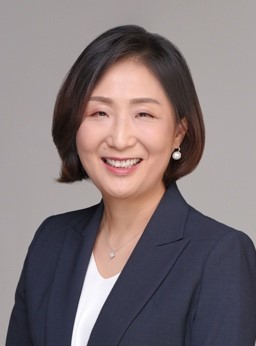 Moderator: Prof. Sue Moon, KAIST, Korea
Moderator: Prof. Sue Moon, KAIST, Korea
Sue Moon received her B.S. and M.S. from Seoul National University, Seoul, Korea, in 1988 and 1990, respectively, all in computer engineering. She received Ph.D. in computer science from the University of Massachusetts at Amherst in 2000. From 1999 to 2003, she worked in the IPMON project at Sprint ATL in Burlingame, California. In August of 2003, she joined KAIST and now teaches in Daejeon, Korea. Her recent research interests lie in high- speed networking. She has served in numerous technical committees of prestigious conferences and served as chairs for WWW 2013 and ACM CoNEXT 2017, just to name a few. She was named a N2Women Star in Computer Networking and Communications by IEEE ComSoc in 2021. Her Best Paper of ACM IMC 2007 won the Test of Time Award in 2022. In 2021 she served as a deliberative member in the Presidential Advisory Council on Science and Technology in 2021 and currently sits on the board for KB Kookmin Bank.
Panelists:
- Jeehoon Kang (KAIST)
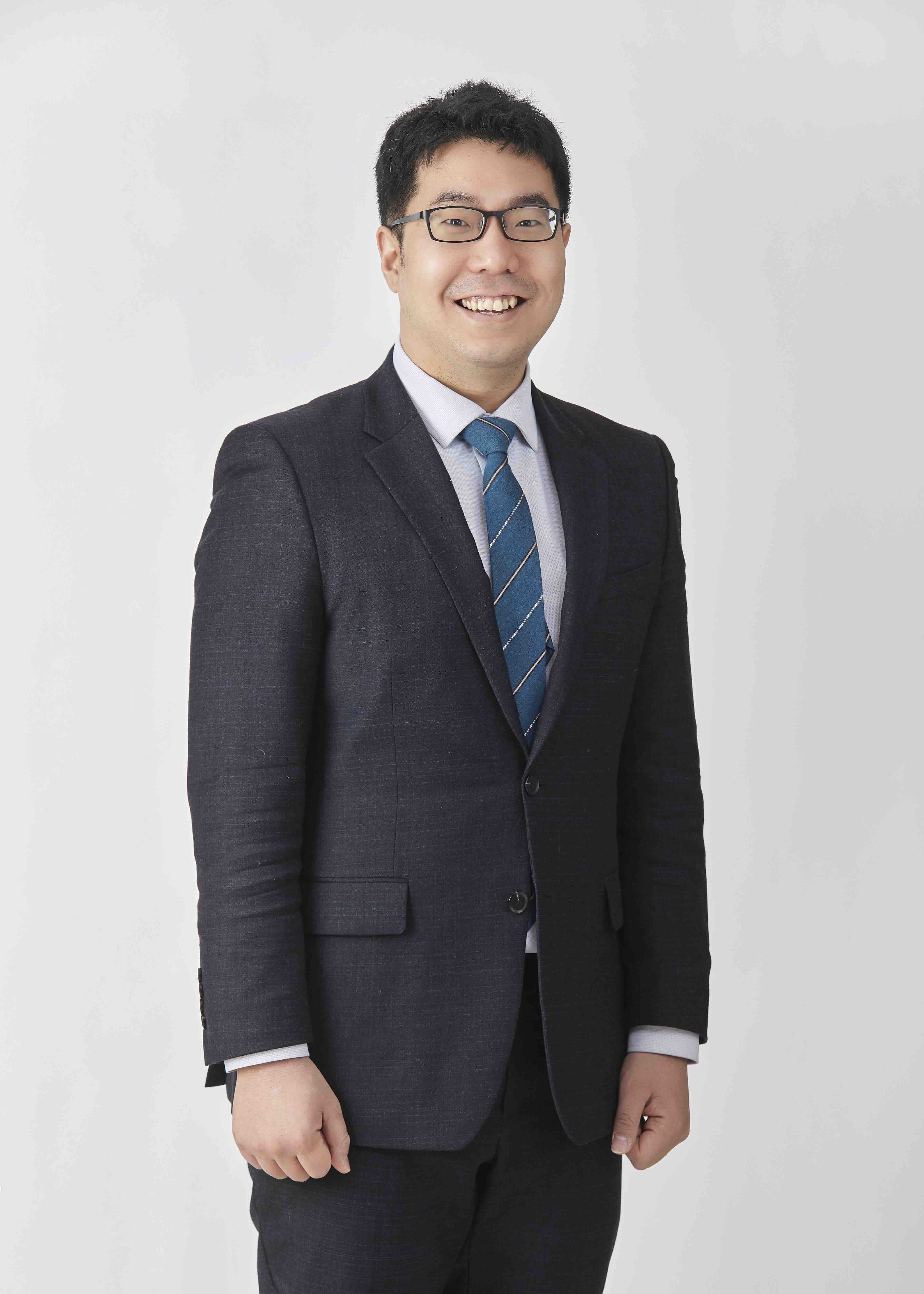 Prof. Jeehoon Kang is an Associate Professor at the KAIST School of Computing and the Principal Investigator at the Concurrency and Parallelism Laboratory. He also serves as Adjunct Faculty at the Graduate School of AI Semiconductor, the Department of Semiconductor System Engineering, and the Graduate School of Quantum Science And Technology. Prof. Kang earned his Ph.D. in Computer Science and Engineering in 2019 from Seoul National University and his advisors were Prof. Chung-Kil Hur and Prof. Kwangkeun Yi. His dissertation, "Reconciling Low-Level Features of C with Compiler Optimizations," established a groundbreaking framework for balancing low-level features in system programming with advanced compiler optimizations.
Prof. Jeehoon Kang is an Associate Professor at the KAIST School of Computing and the Principal Investigator at the Concurrency and Parallelism Laboratory. He also serves as Adjunct Faculty at the Graduate School of AI Semiconductor, the Department of Semiconductor System Engineering, and the Graduate School of Quantum Science And Technology. Prof. Kang earned his Ph.D. in Computer Science and Engineering in 2019 from Seoul National University and his advisors were Prof. Chung-Kil Hur and Prof. Kwangkeun Yi. His dissertation, "Reconciling Low-Level Features of C with Compiler Optimizations," established a groundbreaking framework for balancing low-level features in system programming with advanced compiler optimizations.
Since September 2017, Prof. Kang has served as the Chief R&D Officer at FuriosaAI, leading the development of deep learning accelerators and their compilers. His research focuses on designing and verifying concurrent and parallel systems, with the aim of enhancing performance and reducing power consumption across a variety of computing architectures, from micro-architectures to programming languages and algorithms.
Prof. Kang has made significant contributions to several influential open-source projects, including Crossbeam, a concurrency library in Rust; Crellvm, a verified credible compilation framework for LLVM; and SepCompCert, which focuses on the verification of separate compilation in CompCert. He is an active member of the program committees for major conferences, such as POPL and PLDI, and has held leadership roles such as Chair for the ACM SRC at APSEC in 2023 and Co-Chair for the POPL Student Research Competition in 2022.
His scholarly work has been recognized with several prestigious awards, including the Distinguished Paper Award at the ACM SIGPLAN Symposium on Principles of Programming Languages in 2022, and a Distinguished Paper Award at the ACM SIGPLAN Conference on Programming Language Design and Implementation in 2017.
- Gwangsun Kim (POSTECH)
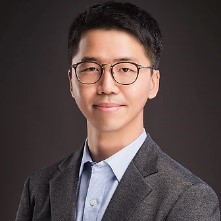 Prof. Gwangsun Kim is an Assistant Professor in the Department of Computer Science and Engineering at POSTECH. He completed his Ph.D. in Computer Science at KAIST in 2016 under the guidance of Prof. John Kim, focusing on high-throughput system design with memory networks. Prior to joining POSTECH, Prof. Kim worked at ARM Inc. as a Senior Performance Engineer and Senior Research Engineer.
Prof. Gwangsun Kim is an Assistant Professor in the Department of Computer Science and Engineering at POSTECH. He completed his Ph.D. in Computer Science at KAIST in 2016 under the guidance of Prof. John Kim, focusing on high-throughput system design with memory networks. Prior to joining POSTECH, Prof. Kim worked at ARM Inc. as a Senior Performance Engineer and Senior Research Engineer.
Prof. Kim’s research centers on advancing computing technology through innovative computer architecture and software optimizations. His work spans high-performance server systems to low-power edge devices, with specific projects on large language models like GPT, near-data processing in multi-GPU systems, and architectures for scalable neural processing units (NPUs).
- Gyuyeong Kim (Sungshin University)
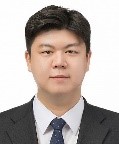 Prof. Gyuyeong Kim is an Assistant Professor in Computer Science at Sungshin Women's University, where he specializes in computer networking and systems. His research primarily focuses on building high-performance and sustainable networked systems. Prof. Kim received his Ph.D. in Computer Science from Korea University in 2020, advised by Prof. Wonjun Lee.
Prof. Gyuyeong Kim is an Assistant Professor in Computer Science at Sungshin Women's University, where he specializes in computer networking and systems. His research primarily focuses on building high-performance and sustainable networked systems. Prof. Kim received his Ph.D. in Computer Science from Korea University in 2020, advised by Prof. Wonjun Lee.
His PhD thesis, "Buffer Sharing Mechanisms for Data Center Networks," addresses critical challenges in network buffer management and aiming to enhance performance and isolation in data center environments. He also developed KLUE, a widely-used lecture evaluation service at Korea University, demonstrating his commitment to improving educational tools.
Prof. Kim is actively involved in the academic community, contributing as a reviewer for prestigious IEEE journals, including IEEE/ACM Transactions on Networking, IEEE Transactions on Cloud Computing, and IEEE Internet of Things Journal. He also serves on the technical program committees for high-profile conferences such as USENIX NSDI and IEEE MASS, playing a pivotal role in shaping research directions within his field.
- Eunyoung Jeong (Alpaca Networks)
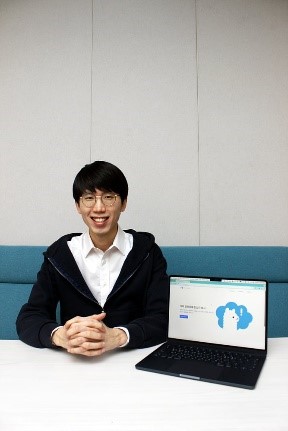 Eunyoung Jeong is the CEO and founder of Alpaca Networks, a cutting-edge cybersecurity deep-tech startup established in July 2022. Alpaca Networks specializes in the Alpaca Infra Platform (AIP), which offers optimized DevOps solutions for managing and accessing servers in both cloud and on-premises environments.
Eunyoung Jeong is the CEO and founder of Alpaca Networks, a cutting-edge cybersecurity deep-tech startup established in July 2022. Alpaca Networks specializes in the Alpaca Infra Platform (AIP), which offers optimized DevOps solutions for managing and accessing servers in both cloud and on-premises environments.
In 2014, he earned a Ph.D. degree from KAIST with a thesis, "Design and Implementation of Highly Scalable User-level TCP Stack for Multicore Systems," under the guidance of Prof. Kyoungsoo Park. Under his leadership, Alpaca Networks has reached significant early milestones, including securing seed funding from KAIST Young Entrepreneurs' Investment Holding in 2023, winning the Excellent Patent Award of South Korea in the first half of the same year, and receiving the Outstanding Investment Pitch Award at the Seoul Startup Incubator Investment Bridge.
The company's flagship product, Alpacon, seamlessly integrates access proxies and reverse connection-based server access protocols with user-friendly server control agents, enabling secure and efficient server infrastructure management. This comprehensive solution boosts both security and productivity by employing a zero-trust based permission model and incorporating various advanced technologies. This innovative approach has effectively addressed the traditional trade-offs between security and operational efficiency.
Wednesday, May 8th 2024
| 16:00-17:30 |
Panel 3 Global Insights: Exploring International Research Funding Opportunities Room: Gayageum A Moderator: Prof. Baek-Young Choi (University of Missouri - Kansas City, USA) |
Abstract: By bringing together distinguished representatives from diverse funding agencies, this panel aims to shed light on the international funding opportunities available for research across disciplines, from fundamental sciences to applied research in technology. Topics will include navigating the landscape of the global research funding environment, strategies for building international partnerships and research initiatives, and understanding the criteria for successful applications. Attendees will leave with a deeper understanding of how to leverage international research grant opportunities, and successfully navigate partnerships and collaborative projects to advance their research goals and contribute to the global body of knowledge.
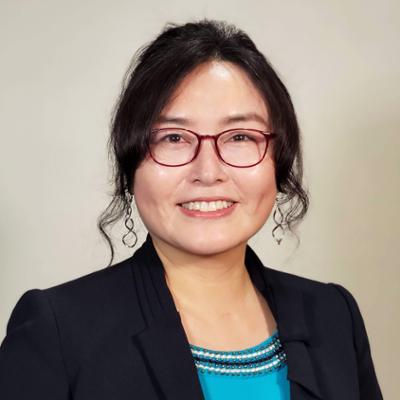 Moderator: Baek-Young Choi, University of Missouri - Kansas City, USA
Moderator: Baek-Young Choi, University of Missouri - Kansas City, USA
Dr. Baek-Young Choi is a Professor of Computer Science in the School of Science and Engineering at the University of Missouri–Kansas City (UMKC). She received her Ph.D. degree in Computer Science and Engineering from the University of Minnesota, Twin Cities. Her research interests generally lie in the broad area of networking and communications, with specific emphasis on Internet-of-Things, software-defined networking, cybersecurity, and smart city technologies. She published five books on network monitoring, storage systems, cloud computing and Internet of Things. She has been a faculty fellow of the National Aeronautics and Space Administration (NASA), U.S. Air Force Research Laboratory’s Visiting Faculty Research Program (AFRL-VFRP) and Korea Telecom’s - Advance Institute of Technology (KT-AIT). She has served as an associate editor for a number of journals, including IEEE Internet-of-Things Journal, Elsevier Journal Computer Networks, Springer Journal of Telecommunication Systems, and IEEE Consumer Electronics Magazine. Her works received multiple Best Paper awards as well as Best Video and Best Poster awards. She has delivered keynotes and tutorials, and served as a general chair, technical program co-chair, and many other organizational committees for many conferences and workshops. She is a senior member of ACM and IEEE, and was a Chair of Women in Communications Engineering (WICE) in the IEEE Communications Society (ComSoc) (2022-23). Currently, she is an IEEE ComSoc Distinguished Lecturer, Associate Editor-in-Chief of IEEE Communications Magazine, the Chair of the IEEE ComSoc Sister & Related Societies Committee, and a member of IEEE ComSoc GLOBECOM/ICC Technical Content and Financial Committees.
Panelists:
- Dr. Deep Medhi (US National Science Foundation, NSF)
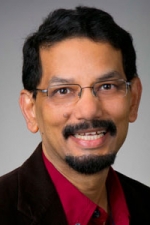 Deep Medhi is a Program Director in the Computer & Network Systems (CNS) Division at the National Science Foundation (NSF), USA. He retired with the Curators' Distinguished Professor Emeritus status in 2022 from University of Missouri-Kansas City (UMKC), USA, which he joined in 1989. He was a rotating program director at NSF from August 2018 to August 2022 and took the permanent position at NSF in September 2022. He received B.Sc. in Mathematics from Cotton College, Gauhati University, India, M.Sc. in Mathematics from St. Stephen's College, University of Delhi, India, and his M.S. and Ph.D. in Computer Sciences from the University of Wisconsin-Madison, USA. Prior to joining UMKC in 1989, he was a member of the technical staff at AT&T Bell Laboratories from 1987 to 1989. While at AT&T Bell Labs, he co-developed Facility Diverse Routing - a feature that was deployed in AT&T's nationwide dynamic routing network. He is co-author of the books, "Routing, Flow, and Capacity Design in Communication and Computer Networks" (2004) and "Network Routing: Algorithms, Protocols, and Architectures" (1st edition,2007; 2nd Edition 2017), both published by Morgan Kauffman/Elsevier. He is a Fellow of the Institute of Electrical and Electronics Engineers (IEEE).
Deep Medhi is a Program Director in the Computer & Network Systems (CNS) Division at the National Science Foundation (NSF), USA. He retired with the Curators' Distinguished Professor Emeritus status in 2022 from University of Missouri-Kansas City (UMKC), USA, which he joined in 1989. He was a rotating program director at NSF from August 2018 to August 2022 and took the permanent position at NSF in September 2022. He received B.Sc. in Mathematics from Cotton College, Gauhati University, India, M.Sc. in Mathematics from St. Stephen's College, University of Delhi, India, and his M.S. and Ph.D. in Computer Sciences from the University of Wisconsin-Madison, USA. Prior to joining UMKC in 1989, he was a member of the technical staff at AT&T Bell Laboratories from 1987 to 1989. While at AT&T Bell Labs, he co-developed Facility Diverse Routing - a feature that was deployed in AT&T's nationwide dynamic routing network. He is co-author of the books, "Routing, Flow, and Capacity Design in Communication and Computer Networks" (2004) and "Network Routing: Algorithms, Protocols, and Architectures" (1st edition,2007; 2nd Edition 2017), both published by Morgan Kauffman/Elsevier. He is a Fellow of the Institute of Electrical and Electronics Engineers (IEEE).
- Dr. Mamadou H. Diallo (US Office of Naval Research Global, ONRG)
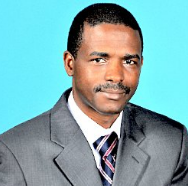 Dr. Mamadou H. Diallo is a Science Director for the United States (US) Office of Naval Research (ONR) Global in London, United Kingdom. He received his Ph.D. degree in Computer Science from the University of California, Irvine, US. Prior to joining ONR Global, he was a Science and Technology (S&T) Manager at the Naval Information Warfare Center (NIWC) Pacific, San Diego, California. His duties were to conduct, and/or monitor science and technology activities including basic and applied research, advanced technology development, in support of the Navy acquisition programs. With ONR Global, his focus areas are Information, Cyber, and Spectrum Superiority. His responsibilities are to visit international Science and Technology (S&T) institutions to develop access and find cutting-edge science and technology. He initiates and manages grants, link international scientists with the US Navy Research Enterprise (NRE), provide global presence, and expand network of global innovators and technologists.
Dr. Mamadou H. Diallo is a Science Director for the United States (US) Office of Naval Research (ONR) Global in London, United Kingdom. He received his Ph.D. degree in Computer Science from the University of California, Irvine, US. Prior to joining ONR Global, he was a Science and Technology (S&T) Manager at the Naval Information Warfare Center (NIWC) Pacific, San Diego, California. His duties were to conduct, and/or monitor science and technology activities including basic and applied research, advanced technology development, in support of the Navy acquisition programs. With ONR Global, his focus areas are Information, Cyber, and Spectrum Superiority. His responsibilities are to visit international Science and Technology (S&T) institutions to develop access and find cutting-edge science and technology. He initiates and manages grants, link international scientists with the US Navy Research Enterprise (NRE), provide global presence, and expand network of global innovators and technologists.
- Dr. Juhee Ki (Global Cooperation, Institute of Information & Communications Technology Planning & Evaluation, IITP))
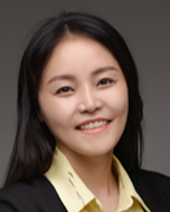 Dr. Ki is a Director of Global Cooperation Team of IITP. She received her B.Sc. (2001) in Mathematics at the University of Seoul and M.Sc. (2003) degree and Ph.D. (2013) degree in Information Security from Korea University, Seoul, South Korea. Her main interests include Public Key Cryptography Application, Privacy & Anonymity and Standardization in the Cyber Security field. She is the Rapporteur of Question 1 (Security Standardization Strategy and Coordination) under Study Group 17 (Security) of the International Telecommunication Union Telecommunication Standardization Sector (ITU-T). She had been a Visiting Scholar in Dept. of Computer Science at University of California, Davis from August 2014 to July 2016.
Dr. Ki is a Director of Global Cooperation Team of IITP. She received her B.Sc. (2001) in Mathematics at the University of Seoul and M.Sc. (2003) degree and Ph.D. (2013) degree in Information Security from Korea University, Seoul, South Korea. Her main interests include Public Key Cryptography Application, Privacy & Anonymity and Standardization in the Cyber Security field. She is the Rapporteur of Question 1 (Security Standardization Strategy and Coordination) under Study Group 17 (Security) of the International Telecommunication Union Telecommunication Standardization Sector (ITU-T). She had been a Visiting Scholar in Dept. of Computer Science at University of California, Davis from August 2014 to July 2016.
Thursday, May 9th 2024
| 9:00-10:30 |
Panel 4 Digital Network Twins for Network Management Room: Gayageum A Moderator: Laurent Ciavaglia (Nokia, France) |
Abstract: Advancements in the field of digital twin technologies have revolutionized various industries, and now, it's time for networks to reap the benefits. The panel on Technologies for Network Twins aims to bring together researchers, experts, and practitioners from academia and industry to share their latest insights and discoveries in the field of network digital twins. This panel will serve as a vibrant platform for fostering collaboration, exchanging ideas, and developing innovative solutions to address the challenges and opportunities presented by the rapidly evolving world of interconnected systems.
Panelists:
- Nicolas Dupuis, Nokia
- Paul Harvey, University of Glasgow
- Marc-Oliver Pahl, IMT Atlantique
- Filippo Poltronieri, University of Ferrara
Thursday, May 9th 2024
| 14:00-15:30 |
Panel 5 Generative AI for Network Management Room: Gayageum A Moderator: Alberto Leon-Garcia (University of Toronto) |
Abstract: Network management has always been inherently data-centric, especially within the expansive and public communication networks that generate substantial error logs and continuously monitor service quality. Current networks are not only complex in their physical interconnections but also in their virtual constructs, such as SDN slices, network function virtualization, OpenRAN, cloud-native operations, MEC, just to name a few factors that increase complexity. The high costs associated with network management are often attributed to the limited automation within these systems. The strategic application of data-driven AI, and specifically Generative AI, holds the potential to navigate through these challenges, heralding a new era of efficiency and innovation in network management.
The promise of Generative AI extends beyond mere novelty; it is rooted in the robust principles of generative statistical models capable of discerning and leveraging intricate statistical correlations within voluminous datasets. This technology set, which recently has been extended with Large Language Models (LLMs), has already made waves by providing insights that have captivated networking experts. We are now experiencing novel ideas in exploiting Generative AI capabilities in network and service management.
NOMS 2024 co-locates with GAIN, the First Workshop on Generative AI in Network Management. As it is poised to be a cutting-edge forum for exploring the transformative potential of Generative AI in the realm of network and service management, this panel previews the discussions for the GAIN Workshop. This panel aims to address the pressing challenges faced by modern networks, such as the need for greater automation to reduce costs and improve efficiency - or how to balance sustainability and AI/ML in network management.
The panel discussion will be an opportunity for thought leaders to share their visions, debate the merits and challenges of Generative AI, and chart a course for its integration into the fabric of network management. It promises to be an enlightening experience for all attendees, offering a glimpse into the future of networks powered by the next generation of AI technology.
Panelists:
- Kristina Dzeparoska (University of Toronto)
- Pal Varga (Budapest University of Technology and Economics)
- Kurt Tutschku (Blekinge Institute of Technology)
- Seowoo Jang (Samsung Electronics)
